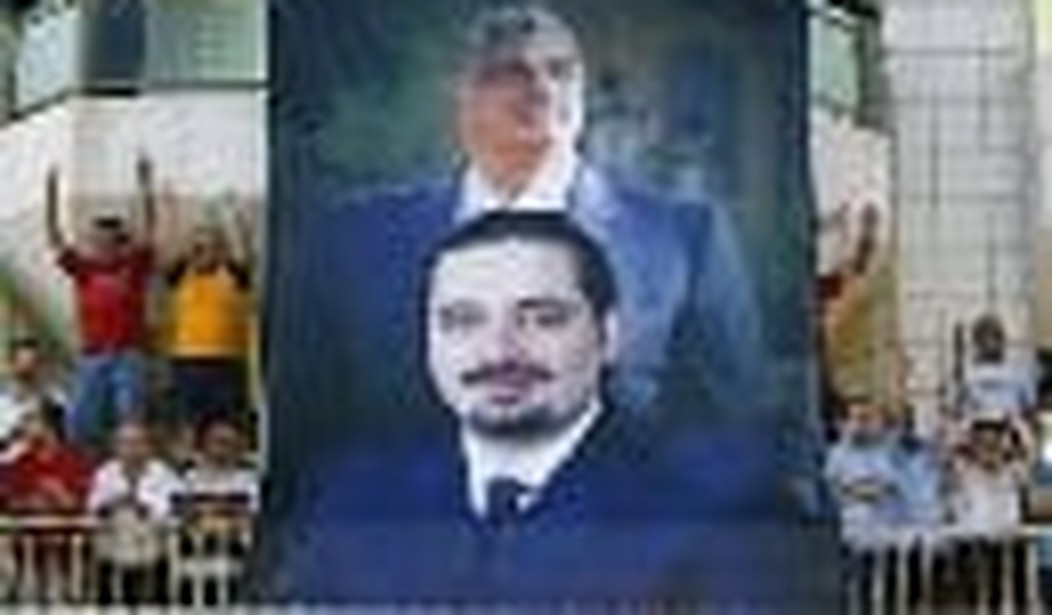February in Lebanon has always been an auspicious time of the year.
Before it’s ’05 edition, Valentine’s Day was looked upon with anticipation by Lebanese lovers as is anywhere else, until February 14th, 2005, when the assassination of Rafik Hariri shook up a complacent world, horrifying even his staunchest opponents.
As long as the assassins are free, jilted lovers and lonely hearts will not be the only ones to dread the anniversary.
While it is true that since that fateful February, the geopolitical alignment did change to Lebanon’s (small) advantage, Lebanese are all too aware that the power balance could all shift again to our detriment.
At the deepest level, all Lebanese agree in their mistrust of their neighbours’ motivations and of the world’s sincerity. Indeed, in spite of our “Cedar Revolution”, chancelleries continue to echo with calls to “engage” with murderers and terrorists.
The parade of Western officials to Damascus continues unabated; this Valentine saw Barack Obama adviser Zbig calling on to “Sisterly Syria”. In spite of the obvious stupidity of such “engagement”, only the Lebanese have to withstand the car bombs, assassinations, and muscle flexing by the Syrian-backed “opposition”. Most of us will not easily forget how, during the First Gulf War, Lebanese independence was sacrificed on the altar of a grand regional deal between the United States and Syria. And many can only see Israeli “overtures” with suspicion, mindful of the useful idiots who maybe be willing to accept a deal to trade “Syrian influence over Lebanon” for Israel’s “strategic interests in the Golan”. In such a context, when Saad Hariri returned the insult to Assad by calling his regime an “Israeli product”, it rang true to quite a few.
And so it has been a February fraught with dangers, as the Syrian-led “opposition”, camped in its “tent city”, was just across Martyr Square and Hariri’s tomb, and could count of the support of the Parliament Guards (most of whom are recruited by Berri, Hezb’ ally). Some were reassured by the army’s show of force, and the police’s ban on motorbikes also helped bring a measure of control over crowds. But the army power of dissuasion has been much reduced after this past “Black Sunday” and the ensuing “unbiased” inquiry…
Valentine’s Day came and went without major headaches, with many enjoying the evening of insouciance that followed.
It seemed the calm was a result of the fact that most “key players” were still too “stunned” by the assassination of Imad Mughnieh. Regardless of the whodunit and why, such a high precision attack, in such a high security location may have perversely “stabilized” the “internal front” for a short while.
A strange debate emerged over the comparative sizes of the crowd gathered to commemorate Rafik Hariri by his son, wealthy Lebanese parliament leader Saad Hariri – and the mourners who paid their respects to Mughnieh.
However, in this context, size really didn’t matter as much as the makeup of the rival crowds.
The numbers gathered to pay their respects to the slain Hariri were surely bolstered by Saad Hariri’s pledges of support and funding in Northern Lebanon. It was indeed a welcome boost in a depressed economy, hard hit by a “one-two punch”. The first blow had been delivered during the 2006 war by Israel who, under the guise of “destroying” an elusive “terrorist infrastructure”, wipe out much of the country’s economic structure. The second blow came from by a Syrian-backed “opposition” who, feeling protected by Hezb’s “holy weapons”, used a “divine victory” to smother one of the economy’s last lungs with its tents and protests.
But Saad Hariri’s support has to do with much more than money. On some level, his opponents’ mistakes secured the support many, and tacit backing of many more. One sign is the appearance of large groups of Christians on that day, more of whom now back Samir Geagea, which gives the lie to Michel Aoun’s claim of exclusive representation of their community. As much as his rivals within the March 14th movement, the General misunderstands the complexities of the Christian community, and the deep commitment to secular values of many a Lebanese. An as Aoun overstepped his mandate, his blind attachment to an alliance with the local chapter of Iran’s Pasdaran has lost him the support of quite a few. His increased closeness to Syria has lost him even more, especially when so many Lebanese citizens (among them many of his early partisans) still languish in Assad’s dungeons, forgotten by all except grieving families. For now, Aoun’s support does not extend much beyond a (sizeable) constituency blinded to his mistakes by other’s dirty linen…
Most Lebanese are eager for normalcy, back to the old days when our mercantile race lived “a good business environment”. For all the rhetoric, nobody really wants to see the return the day of tutelage to return. Indeed, in the aftermath of 2005, all the attacks against Syrian workers were carried out in pro-Syrian “areas”… However, in our centralized “winner takes all” political system, many find it easier to “leverage” their Syrian support rather than cultivate local constituencies.
But the politicians may have dragged us too far down a dead end; through the “creeping normalcy” of the absence of the state. In spite of their great courage, men like Tyre’s Shiite Mufti Ali Al-Amin can do little in the face of Iranian-funded party.
As long as Hezb’ monopolizes Shiite “representation”, the country will creep into a “new normal” of sectarian division. In this context, the rival demonstrations became more than mere popularity contest. On one side, Saad Hariri’s cross-sectarian alliance did more than just clamour its eagerness for normalcy; it raised the bar when he reminded the Arab world that “there will be no value” to the upcoming summit “in the absence of a Lebanese president”. On the other side, the Shiite community now sees itself shanghaied into circling its wagons around Nasrallah’s calls for the effective destruction of Lebanon in his total war against the “Zionists”.
Even considering our bloody past, this sectarian brew makes for a uniquely dangerous cocktail. The stresses it exerts are too large for small Lebanon to withstand, and too volatile for our neighbours to handle.
Jeha lives in Beirut and blogs at Jeha’s Nail









Join the conversation as a VIP Member